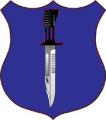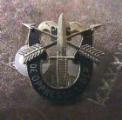That makes sense for training at the university or in any training where the evaluation has no significant impact. I would only add that a lot of the evaluators at Fort Lewis, where all of the ROTC cadets go between their junior and senior year, are newly minted 2LTs. This is a problem because the purpose of the 5-week program at Ft Lewis is to evaluate the cadets against their peers. It can impact whether people get their first choice of branch assignment (lucky for me, Infantry was relatively easy to get). Even as a cadet, I had a hunch that a lot of the LTs didn't know what they were doing. In hindsight, it is obvious that they didn't. Hopefully things have changed.








 ), and that longer training windows would be optimal in some cases. The problem with getting the latter modified is that it takes years to turn the rudder. A patrial case in point is the Marine Corps start-up of its own 25mm Master Gunner course. For years on end, we have sent students to the Army course since our LAV-25s run the same Bushmaster chain giun. Advocates for our own school have been around almost since the first Marine graduated from Benning. The LAV-25 was introduced in 1984, and our pilot program is just starting this fall. There is something to be said for the Army program, but doing it in-house was generally preferred because of platform differences. Moving money and manpower around the Corps is like moving mountains sometimes.
), and that longer training windows would be optimal in some cases. The problem with getting the latter modified is that it takes years to turn the rudder. A patrial case in point is the Marine Corps start-up of its own 25mm Master Gunner course. For years on end, we have sent students to the Army course since our LAV-25s run the same Bushmaster chain giun. Advocates for our own school have been around almost since the first Marine graduated from Benning. The LAV-25 was introduced in 1984, and our pilot program is just starting this fall. There is something to be said for the Army program, but doing it in-house was generally preferred because of platform differences. Moving money and manpower around the Corps is like moving mountains sometimes.









Bookmarks